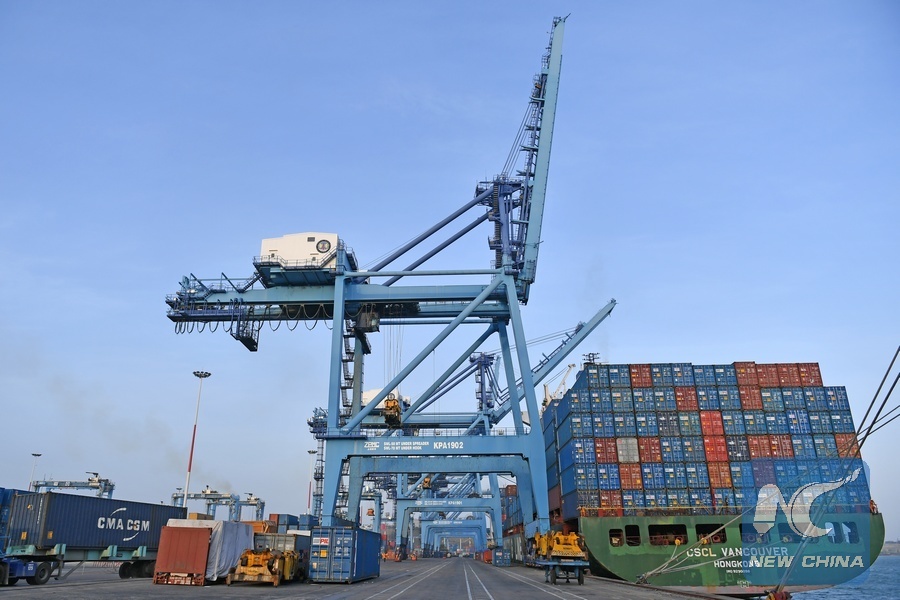
Photo taken on Jan. 9, 2017 shows the 19th berth of East Africa's largest port Mombasa Port in Mombasa, Kenya. (Xinhua/Sun Ruibo)
Projecting Africa's aggregate growth and domestic product (GDP) to grow at 3.5 percent in 2018, and 3.7 percent in 2019, a new UN report reiterates that East Africa remains fastest-growing sub-region on the continent.
The World Economic Situation and Prospects (WESP) report launched on Tuesday at the UN Economic Commission for Africa (UNECA) in Addis Ababa, Ethiopia, states that Africa is expected to see stronger growth in 2018 and 2019.
It calls for renewed efforts to decrease over-reliance on commodity revenues through economic diversification and structural transformation.
With GDP growth of 5.3 percent in 2017, the East African sub-region is expected to grow by about 6 percent in 2018 and 2019, says the report.
Briefing the press on the report, Khaled Hussein, Chief of Forecasting Section Macroeconomic Policy Division of the UNECA, said the growth in the sub-region is facilitated by large infrastructure investments and the expansion of domestic markets.
North Africa is projected to stabilize at 4.1 percent in 2018 and 2019, after reaching 4.8 percent in 2017, as a result of firmer commodity prices, further improvement in the security situation and continuing economic recovery in Europe.
West Africa will continue its growth recovery, from 2.4 percent in 2017 to 3.3 percent in 2018, as oil prices rise and oil production gradually increases in Nigeria, easing fiscal and foreign exchange pressures.
Several other west African countries, including Cote d'Ivoire, Ghana and Senegal, are expected to continue a path of strong growth supported by robust spending on infrastructure, higher investor confidence and improvements in the business climate.
The report projects growth in South Africa to improve but remain modest.
Following the growth of 1.2 percent in 2017, GDP in the Southern African sub-region is projected to expand by 2.3 percent in 2018 and 2.5 percent in 2019.
In South Africa, net exports will rebound with the moderate recovery in the agriculture and mining sectors. Growth will, however, remain relatively subdued amid heightened political uncertainty.
Buoyed by higher oil prices, growth in Central Africa is estimated to rebound from 0.7 percent in 2017 to 2.1 percent in 2018. Insecurity and relatively low commodity prices weigh on prospects for the area.
The report notes that several central banks in Africa decreased policy rates in 2017 amid moderately easing inflationary pressures.
As the impacts of large currency depreciations subside, inflation is projected to decrease in 2018-2019. However, inflation in many African countries remains high relative to the rest of the world.
Investments in human capital as well as efforts to strengthen governance and institutions are needed. Importantly, acute malnutrition in conflict-affected areas must be urgently addressed, emphasizes the report.


